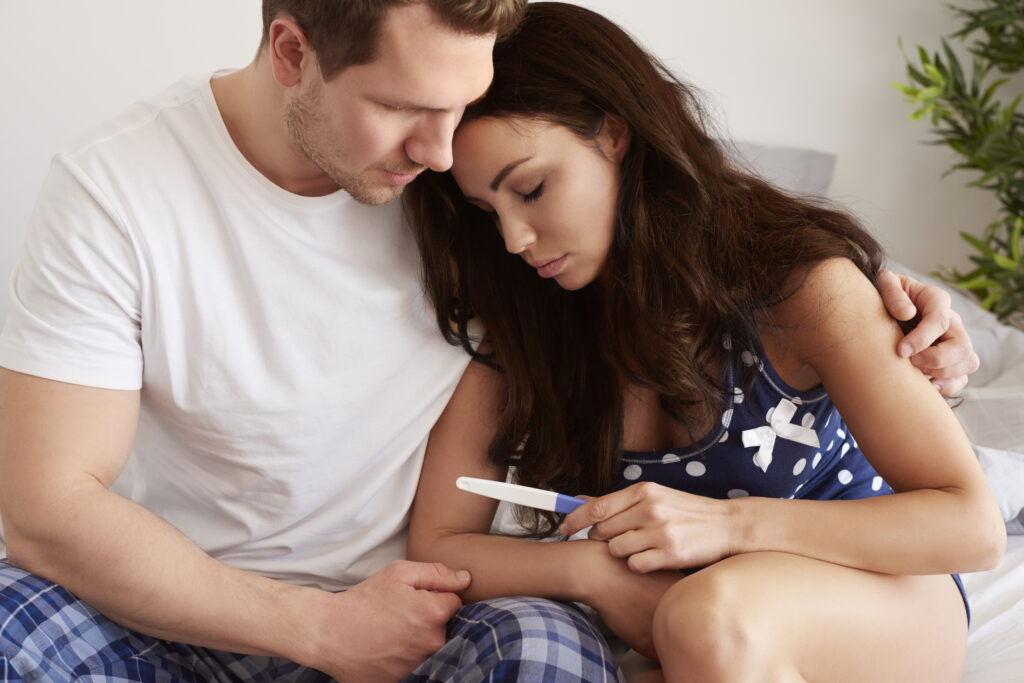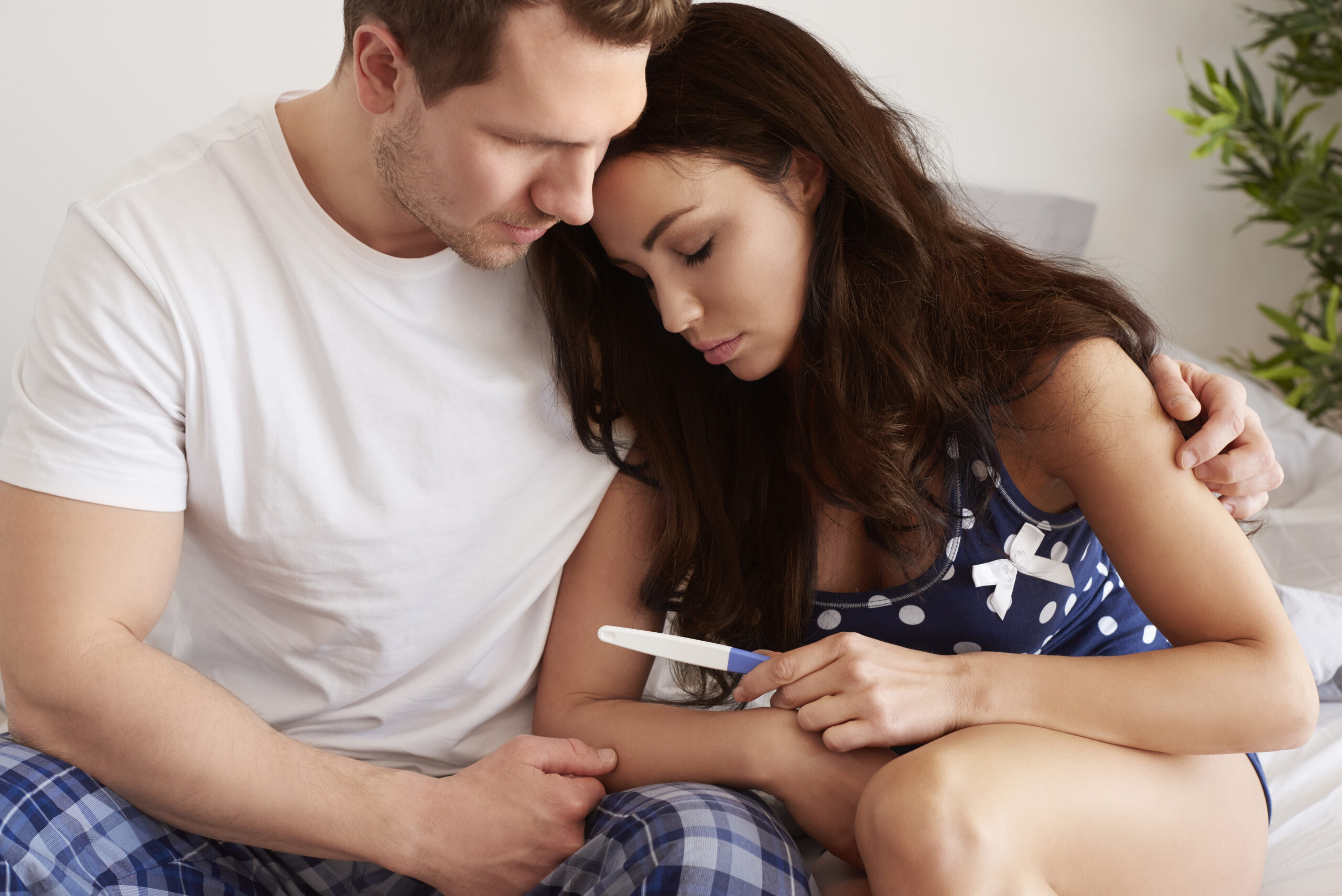Curious about how soon you can take a pregnancy test? Learn about the best time to test, early signs of pregnancy, and how to ensure accurate results
Discovering whether you’re pregnant is often filled with anticipation, hope, or anxiety. One of the most common questions is « How soon can I take a pregnancy test? » Testing at the right time can save you from frustration and confusion, as testing too early may lead to inaccurate results.
In this article, we’ll explore everything you need to know about when to take a pregnancy test for the most reliable result, what factors influence timing, and the differences between early pregnancy tests and regular tests.

The Biology Behind Pregnancy Tests
To understand the timing of pregnancy tests, it’s essential to know how they work. Pregnancy tests detect the hormone human chorionic gonadotropin (hCG), which your body starts producing after a fertilized egg implants in the uterine lining.
hCG Levels and Detection
The timing of hCG production is key to pregnancy test accuracy. After fertilization, the egg travels to the uterus, where it implants itself in the uterine wall. Implantation typically occurs about 6 to 12 days after ovulation. Once implanted, the embryo starts releasing hCG into your bloodstream, which eventually passes into your urine.
How Soon Can I Take a Pregnancy Test?
The earliest time you can take a pregnancy test depends on the type of test and the sensitivity of its ability to detect hCG. However, testing too soon can result in a false negative because there may not yet be enough hCG in your body for the test to detect.
Regular Home Pregnancy Tests
Most regular home pregnancy tests recommend waiting until the day of your missed period. By this time, enough hCG is typically present in your urine to be detected by a pregnancy test.
Early Detection Pregnancy Tests
Some pregnancy tests are designed to be more sensitive and can detect pregnancy hormones a few days before your missed period. These early detection tests are generally reliable, but their accuracy increases the closer you get to your missed period.
Can You Test Right After Sex?
Many women wonder if they can test right after having unprotected sex, but the answer is no. It takes time for fertilization to occur, and even more time for the embryo to implant and produce hCG. Testing immediately after sex will result in a false negative.
Factors That Affect Testing Timing
Several factors can influence when you should take a pregnancy test, and understanding these can help improve accuracy.
1. Irregular Periods
If your menstrual cycle is irregular, predicting the right time to test can be tricky. Women with irregular cycles might not know when they ovulate, making it difficult to determine when to take a pregnancy test. In these cases, it’s best to wait at least two weeks after having unprotected sex or tracking ovulation using other methods, such as basal body temperature or ovulation test kits.
2. Early Symptoms of Pregnancy
Some women may experience early symptoms of pregnancy, such as breast tenderness, nausea, or fatigue, before a missed period. If you notice these symptoms, you may be tempted to take a test early. However, remember that these signs can also mimic premenstrual symptoms, so it’s best to wait until a missed period for the most accurate result.
3. Medications and hCG Injections
If you are undergoing fertility treatments or have received an hCG injection, your body may have elevated hCG levels even if you’re not pregnant. This can lead to a false positive if you test too early. It’s important to consult your doctor if you’ve had an hCG injection and are unsure when to test.
The Best Time of Day to Take a Pregnancy Test
Another common question is, « What time of day should I take a pregnancy test? »
First-Morning Urine for Best Results
For the most accurate results, it’s best to take a pregnancy test with your first-morning urine. This is because your urine is most concentrated in the morning after a night of sleep, which means hCG levels are likely to be higher.
However, many tests on the market today are sensitive enough to detect hCG at any time of the day. If you test later in the day, try to avoid drinking too much fluid beforehand, as this can dilute your urine and affect the result.
What to Do If You Get a Negative Result
If you take a pregnancy test early and receive a negative result, it doesn’t necessarily mean you’re not pregnant. It’s possible that there isn’t yet enough hCG in your urine to be detected. If your period doesn’t start a few days after a negative result, retake the test a few days later for a more reliable outcome.
How to Ensure Accurate Results
Getting accurate results from a pregnancy test depends not only on timing but also on following instructions carefully.
1. Follow Test Instructions
Each pregnancy test comes with instructions, and it’s important to follow them closely. Pay attention to the time frame within which you should read the results. Reading the test too early or too late can affect the accuracy.
2. Test on the Right Day
As tempting as it may be, don’t test too early. The most accurate results come when you wait until after your missed period, as hCG levels will have increased enough to be reliably detected.
3. Consider Testing Twice
If you receive a negative result but still suspect you might be pregnant, it’s a good idea to test again a few days later. hCG levels double every 48 to 72 hours in early pregnancy, so waiting a few days between tests can make a difference.
Internal Links for Further Reading
For more insights on pregnancy testing and symptoms, visit the following:
- Pregnancy Symptoms: Learn more about the early signs of pregnancy and what to watch out for.
- Pregnancy Testing: Understand the best times to test for pregnancy and how to avoid false results.
- Postpartum: Explore resources on postpartum recovery and maternal health.
External Links for Further Reading
Check out these reputable resources for more information on pregnancy testing and symptoms:
- WebMD – A comprehensive guide on pregnancy tests and how they work (WebMD).
- NHS – Learn about when to take a pregnancy test and what to expect (NHS).
- Healthline – Discover tips for accurate pregnancy testing and early detection (Healthline).
Conclusion
In conclusion, the question « How soon can I take a pregnancy test? » has a simple answer: while early detection tests are available, waiting until after your missed period will give you the most accurate result. Patience is key, and it’s essential to understand the process your body goes through after conception to produce enough hCG for detection.
Remember, testing too early may lead to a false negative, and symptoms such as nausea or breast tenderness can sometimes mimic premenstrual signs. Following the guidelines above will help ensure you get reliable results and peace of mind.
Ultimately, if you’re unsure about your test result or experiencing symptoms of pregnancy but continue to get negative tests, it may be time to consult a healthcare professional for further evaluation.
By understanding the timing, type of test, and proper methods, you’ll be better equipped to navigate the process of confirming your pregnancy and starting this new chapter in life.
